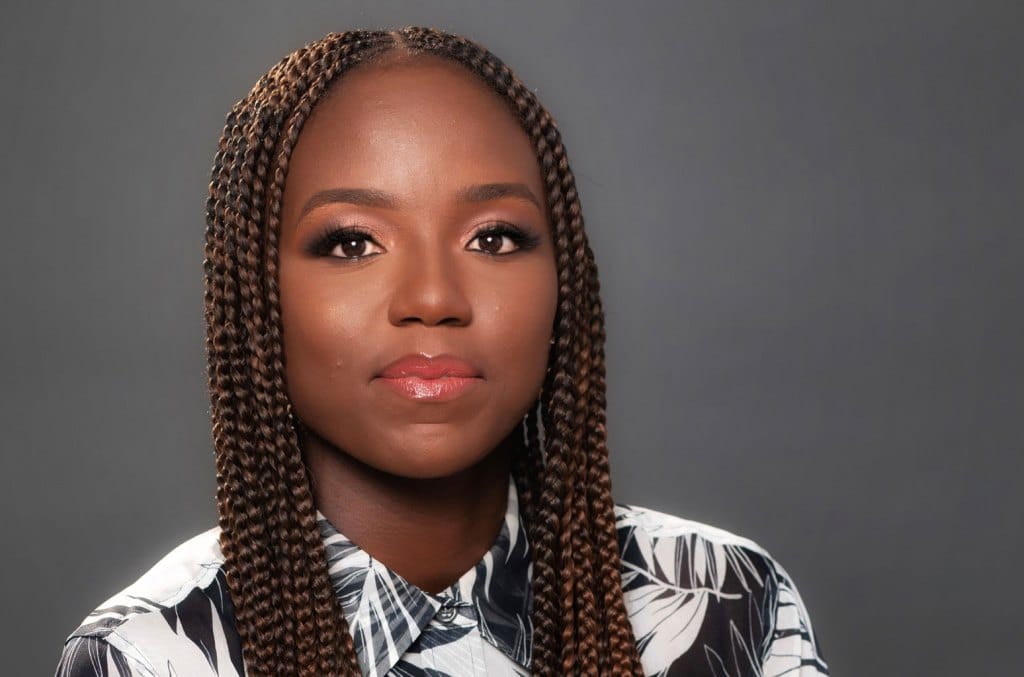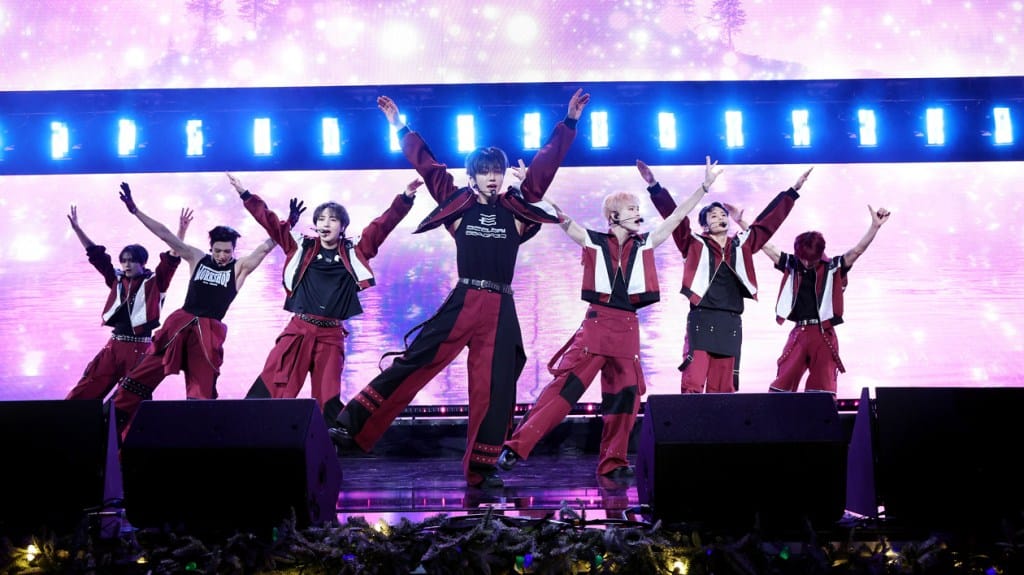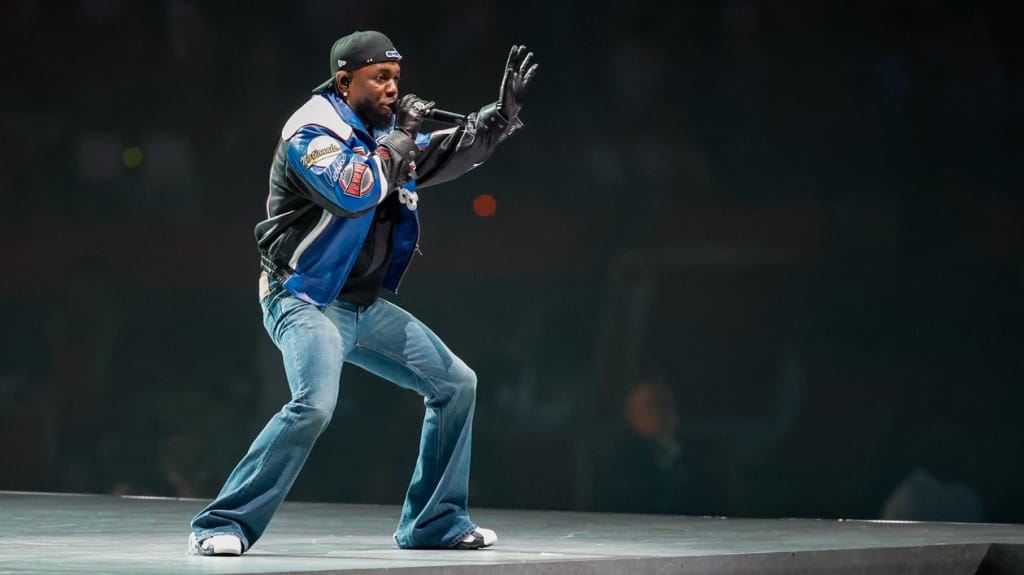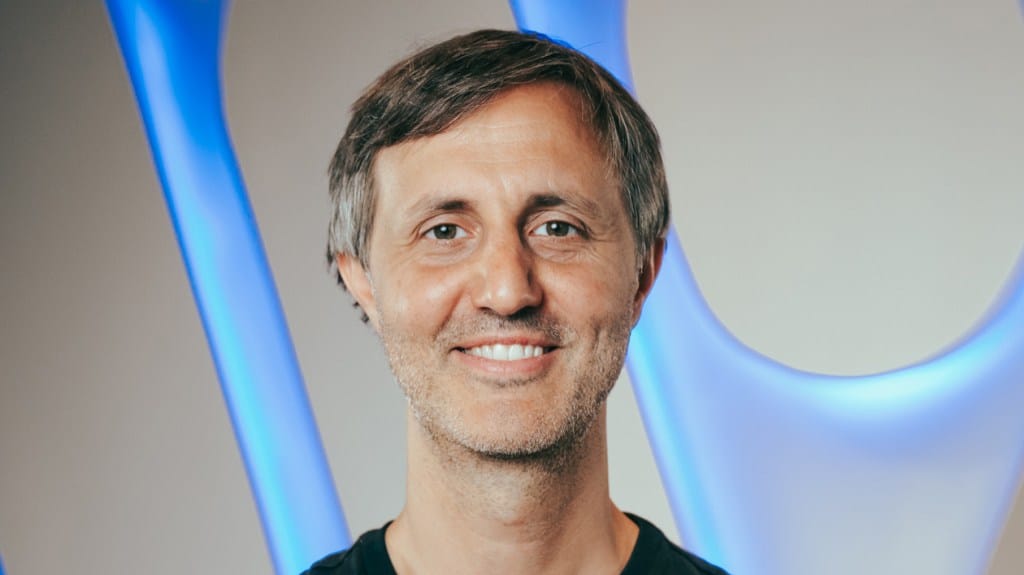Business
Page: 125
SYDNEY, Australia — Warner Chappell Music has struck an exclusive worldwide administration deal with Luke Steele, frontman and co-songwriter Australian electronic pop outfit Empire of the Sun.
Born in New Zealand and raised in Perth, Steele is a one of the highest-flying talents of his generation to emerge from Down Under.
Steele (as Emperor Steele) and Nick Littlemore (Lord Littlemore) have released four studio albums as Empire of the Sun, each of them cracking the ARIA Top 10. Along the way, the act has snagged eight ARIA Awards, two APRAs, and a APRA Billions Award for “Walking on a Dream,” awarded to APRA AMCOS songwriter members and their publishers for one billion streams of a song.
“Walking on a Dream” was an ARIA Top 10 hit in 2008, and belatedly drove into the Billboard 100 it was synced to a Honda Civic commercial in 2016. In the U.S. the song drove all the way to No. 65 on the Billboard Hot 100 and to No. 1 on Billboard’s Dance Club Songs, their second leader on the tally after 2013’s “Alive”.
Trending on Billboard
Debut album Walking on a Dream peaked at No. 97 on the Billboard 200 in 2016, Ice on the Dune went to No 20 in 2013 and Two Vines climbed to No. 51, also in 2016.
Empire of the Sun’s catalog has shifted over 5.5 million albums worldwide, reps say, and accumulated more than 7.6 billion streams.
Steele has also released two albums and two EPs with the Sleepy Jackson, a solo album Listen To The Water, and worked with the likes of Jay-Z and Beyoncé.
“I’m a longtime fan of Luke,” comments Guy Moot, co-chair and CEO of WCM. “As one of Australia’s most influential and successful musical talents, he’s consistently pushed boundaries and delivered groundbreaking work with every release. We’re proud to be supporting him at such a pivotal moment in his career and look forward to seeing where his vision takes electronic music next.”
Adds Dan Rosen, president, Recording and Publishing, Australasia, WMG: “Luke is an exceptional songwriter and artist. He has been at the forefront of the Australian music scene for almost two decades and has had significant global impact with his music.” This signing, says Rosen, is “super exciting” for “everyone at Warner Chappell Music and we’re honored to be a part of this next stage in Luke’s artistic journey.”
Later this month, Empire of the Sun embarks on their world tour in support of Ask That God, their fourth and latest studio album, the expanded version of which dropped last week. The deluxe version includes “Somebody’s Son,” featuring Lindsey Buckingham.
When Empire of the Sun reunite, “we’re trying to find that rare jewel every time,” Steele told Billboard last year, ahead of the release of Ask Their God. “That’s what keeps it exciting for us.”
Ludacris signed with UTA for representation in all areas, including music, film/TV and other ventures. The rapper is still repped by Cara Lewis Group for concert bookings in the U.S. He’s managed by Chaka Zulu and Jeff Dixon of Ebony Son Entertainment and attorney Darrell Miller of Fox Rothschild.
Longstanding electronic music producer Seven Lions signed with Los Angeles-based artist management company MLennial, with the partnership focused on all of the artist’s future endeavors, including global touring. Launched a year ago, MLennial is run by founder Mike Lisanti, formerly the COO of Prodigy Artists, and focuses on multi-genre DJs and producers in dance and bass music. “Jeff (Seven Lions) has been one of my favorite artists since the start of my journey in the music industry,” says Lisanti. “His win in the Above & Beyond ‘You Got To Go’ remix contest on Beatport inspired me to enter similar competitions for exposure back in 2012. At the time, I was part of Charity Strike, and my duo partner and I went on to win two Beatport contests shortly after Jeff’s iconic entry. That moment kickstarted my entire career in the industry. Now, managing Seven Lions at the company I’ve built from the ground up feels not only full circle but truly surreal. We’re thrilled to unveil this new chapter for Seven Lions and are committed to serving both longtime and new fans through a fresh, innovative lens.” – Katie Bain
Grammy- and Oscar-winning rapper, actor, author and activist Common signed with CAA and Anonymous Content. He continues to be represented by Ceremony Music Group, The Lede Company, SMAC Entertainment, and Myman Greenspan Fox Rosenberg Mobasser Younger & Light.
Trending on Billboard
McFly signed to Absolute Label Services for the release of the U.K. pop group’s “21st birthday album,” 21 LIVE. The release follows the ITV music special McFLY: The 21st Birthday Party, which was recorded at The O2. This will be the band’s fourth album released through Absolute.
Hawaiian country artist Maoli signed with ONErpm and Huff Co., which formed a joint venture last year. He’s set to release the album Last Sip of Summer on June 27 and recently embarked on a tour that will hit New Zealand, Australia, the U.S. and Canada.
Bluegrass band The Steeldrivers signed with Sun Records, which will release the group’s new self-produced album, Outrun, on May 23.
Universal Music Group Greater China signed an exclusive, multi-year global agreement with Chinese pop star Liu Han, who has been making music in the country for four decades. The deal marks the first time that his “majority body of work,” both recording and publishing rights, will be under a single umbrella, according to a press release. “Liu Huan is a towering figure in contemporary Chinese music history, and we are proud to support his journey in sharing his extraordinary music with the world,” Adam Granite, Universal Music Group executive vp of market development, said in a statement on the deal.
DJ and producer Netsky signed with One World Artists, the official artist agency of Tomorrowland, for global management representation. The drum and bass pioneer recently released the new single “California.”
HSquared Management signed Juno Award-winning artist Jordan St. Cyr. The signing of the “Rescue” hitmaker marks the company’s second joint signing since industry executives Kelli Haywood and Leigh Holt launched the company last year. – Jessica Nicholson
Pitbull’s Mr. 305 Records signed Cuban singer-songwriter and producer WhiteStar, who is regarded as one founders of the Bajo Mundo movement alongside Farruko and IAmChino. Under the deal, WhiteStar seeks to “expand this movement while exploring new musical horizons,” according to a press release. His contributions to the Bajo Mundo genre, a style that blends reggaetón, guaracha, dembow and EDM, include projects like Farruko’s mega hit “Pepas” and “Helicóptero” by El Alfa. “Joining Mr. 305 Records is a blessing, and a dream come true,” WhiteStar said in a statement. “I’ve always known I had the potential to be a star, and this is the right time to focus on my solo career. I’m excited to work with a label I’ve always admired, one that has played a key role in my development as a songwriter.” – Griselda Flores
The Ophelias signed with Get Better Records, which is set to release the band’s Julien Baker-produced album Spring Grove on April 4. Baker sings harmonies and plays instruments throughout the album, according to a press release. The Ophelias is composed of Spencer Peppet (guitar & vocals, she/her), Mic Adams (drums, he/him), Andrea Gutmann Fuentes (violin, she/her), and Jo Shaffer (bass, they/she).
Sophia Talamas, a content creator with more than 30 million followers on social media who last year participated in the influencers’ panel at Billboard Latin Music Week, signed a record deal with Sony Music Latino and will release her first single on Feb. 21. “This song is called ‘Funeral’ and is based on ‘real events’,” Talamas tells Billboard, adding that she has been working with Sony for over a year. “It’s not that easy to release a 1st song. I have learned to have a lot of patience, especially when you also have to complement or go from influencer to artist,” she adds. “When the 2nd one comes, it should be easier and faster.” – Isabela Raygoza
Mom+Pop Music signed alt-country supergroup Chaparelle, which released a new song, “Devil’s Music,” on Jan. 31. The group — composed of Zella Day, Jesse Woods and Beau Bedford — will be releasing new music throughout the year and is slated to kick off a 2025 tour on April 3. Chaparelle is managed by Jack Gallagher and Fiona Dolan at OPEN Management.
Warner Music Group (WMG) announced Tuesday (Feb. 11) that it’s completed its full acquisition of Africori, one of Africa’s leading digital music distribution, rights management and label services companies. Founded in 2009 in Johannesburg, South Africa, Africori touts itself as “one of the biggest independent songbooks in Africa,” including music by Kelvin Momo, Master KG […]
A$AP Rocky waived his right to testify on Tuesday (Feb. 11) during the ongoing trial over accusations that he fired a gun at former friend A$AP Relli near a Hollywood hotel in November 2021. In a TMZ video, Superior Court Judge Mark S. Arnold reminds the former A$AP Mob rapper (real name Rakim Mayers) that he […]
Lyor Cohen, YouTube’s global head of music and the former president at Def Jam Recordings, head of Warner Music Group’s recorded music division and founder of 300 Entertainment, has penned an urgent open letter to Ye — formerly known as Kanye West — imploring him to stop using antisemitic rhetoric and other actions following a […]
Ye (formerly Kanye West) is facing a lawsuit from a former employee who says the rapper compared himself to Hitler and threatened her because she is Jewish.
The case, filed Tuesday (Feb. 11) in Los Angeles court, claims he subjected the unnamed woman to “antisemitic vitriol,” including texting her “Hail Hitler” and calling her “ugly” and a “bitch.” And the woman says she was “swiftly terminated” when she complained.
“Ye carried out a calculated campaign to threaten and psychologically torment Jewish people around him, specifically plaintiff,” the woman’s lawyers wrote. “There can be little doubt that Ye treats those around him, especially Jewish people and women, much worse than just a bully. He is a self-proclaimed ‘Nazi’.”
The Jane Doe accuses Ye and his Yeezy LLC of religious and gender discrimination, wrongful termination, breach of contract, and a variety of other legal wrongdoing.
The new lawsuit, one of many filed by former employees against Ye, came days after he went on an offensive tirade on X (formerly Twitter) that included antisemitic comments (“I’m a Nazi” and praise for Adolf Hitler) as well as a bizarre demand to free Sean “Diddy” Combs, who is currently in custody awaiting trial on sex crime charges. On Sunday, Ye ran a TV ad during the Super Bowl that directed viewers to an online store where they could purchase a shirt emblazoned with a swastika.
It was hardly the first time the rapper has made such statements. After a string of similar antisemitic rhetoric and other erratic behavior in October 2022, the star lost much of what was a once-formidable business empire, including fashion partnerships with Adidas, The Gap and Balenciaga, as well as his representation by Creative Artists Agency and many of his lawyers.
In Tuesday’s lawsuit, the Jane Doe plaintiff says she was hired at Ye’s Yeezy LLC as a marketing specialist in December 2023, shortly before he issued an apology (written in Hebrew) for those earlier antisemitic statements. But she says the apologetic sentiment was “short lived.”
A month later, amid renewed controversy over the cover art of his Vultures Vol. 1, the woman claims she suggested that Ye issue a statement condemning Nazism. When the message was relayed to the star himself, he allegedly responded with a text message (included in the lawsuit) reading “I Am A Nazi.”
“This not only deeply offended Doe but the loud and proud antisemitism also made her feel endangered,” her attorneys wrote.
Months later, the rapper allegedly texted her and another Jewish employee “What the fuck is everyone here getting paid?” In another screenshotted text, he allegedly followed up: “Welcome to the first day of working for Hitler.”
The abuse allegedly escalated from there, the lawsuit says, including a series of texts in June 2024 in which Ye allegedly said “Shut the f— up b—-” called her “ugly as f—” and texted “Hail Hitler.” Later, he also allegedly texted, “You what’s left after I said deathcon” — a message that Jane Doe says was intended to reference his previous antisemitic rants and meant as a threat based on her religion.
Just hours after she complained about the text messages to her manager, the lawsuit says she was sent an email from an attorney representing Yeezy terminating her employment.
A spokesman for Ye did not immediately return a request for comment on Tuesday (Feb. 11).
Ye — formerly known as Kanye West — has been dropped by his talent agency 33 & West after the Vultures rapper went on another anti-semitic rant on X. Ye had been with the independent talent agency for about a year before his agent Daniel McCartney took to Instagram Stories on Monday (Feb. 10) to […]
K-pop company SM Entertainment used a healthy concert business to compensate for a slow new release schedule in posting revenue of 273.8 billion won ($189 million) in the fourth quarter of 2024, up 9% year over year, according to the company’s latest earnings report. Operating profit nearly tripled to 33.9 billion won ($23 million) and net loss was more than halved to 24.1 billion won ($17 million).
Recorded music revenue dropped 5.1% to 86.0 billion won ($59 million) due to a decrease in new album sales, which came in at 3.78 million units versus 5.51 million units in the prior-year period. NCT Dream sold 1.56 million units while Aespa had 1.1 million album sales in the quarter. Elsewhere, WayV sold 400,000 units and Irene sold 360,000 units.
Concert revenue grew 11.9% to 22.5 billion won ($15.5 million) thanks to an expanded tour schedule during the quarter. Exo’s Chanyeol performed 14 solo shows across Southeast Asia, Japan and China. NCT Wish performed 12 in Asia. NCT Dream, which began its world tour in the second quarter, played nine concerts in the fourth quarter. The higher number of concerts, as well as an increase in special events such as pop-up stores, helped merchandise and licensing revenue jump 33.7% to 51.2 billion won ($35.3 million).
Trending on Billboard
In the first quarter, music releases include SMTOWN’s 30th anniversary album, SMTOWN, THE CULTURE, THE FUTURE, on Friday (Feb. 14). Red Velvet’s Seulgi and WayV’s Ten are also both due to release EPs, and a new girl group, Hearts2Hearts, will debut on Feb. 24 with the single “The Chase.”
This year, SM Entertainment is celebrating its 30th anniversary with a new slogan (“The Culture, The Future”), new films, new broadcast programs and SMTOWN LIVE 2025 World Tour concerts around the globe. “’THE CULTURE’ represents the legacy and cultural heritage that SM has built over the past three decades,” CEO Jang Cheol-hyuk said during the earnings call. “‘THE FUTURE’ embodies our ambition to drive innovation in the global music industry and lead the next era of K-pop. At SM, music is at the heart of everything we do. Through our music and cultural influence, we strive to remain a meaningful part of people’s daily lives. This slogan underscores our commitment to pioneering the future of K-pop while honoring the foundation we’ve built.”
In addition to announcing fourth-quarter results, SM Entertainment revealed that its board of directors approved the retirement of the remaining treasury shares, which are shares the company has repurchased from shareholders and holds on its books. The remaining treasury shares equal 2% of outstanding shares and are valued at 40.3 billion won ($27.8 million). Last February and August, the company retired more than 35 billion won ($24.1 million) worth of treasury shares.
SM Entertainment shares rose 2.9% to 95,000 won ($65.42) on Tuesday (Feb. 11) following the earnings release and announcement of the share retirement. Year-to-date, SM Entertainment stock has risen 25.7%.
This is The Legal Beat, a weekly newsletter about music law from Billboard Pro, offering you a one-stop cheat sheet of big new cases, important rulings and all the fun stuff in between.
This week: Kendrick Lamar plays “Not Like Us” during his Super Bowl halftime show despite Drake’s defamation lawsuit; an appeals court sends a case over Jimi Hendrix’s music to trial; the estate of Notorious B.I.G. sues over a famed photo; and much more.
THE BIG STORY: Say, Drake…
If a team of lawyers tried to dissuade Kendrick Lamar from performing “Not Like Us” during Sunday night’s Super Bowl halftime show, they didn’t do a great job.
Trending on Billboard
After much speculation about whether or not the rapper would play his chart-topping, Grammy-sweeping hit at the Superdome – a performance that came weeks after Drake sued Universal Music Group over allegations that the song defamed him by calling him a pedophile — Kendrick really didn’t hold back much.
With a trolling grin, he looked directly into camera and made eye contact with 120 million viewers when he rapped “Say, Drake, I hear you like ’em young” – a lyric he then followed up with lines like “You better not ever go to cell block one” and “Just make sure you hide your lil’ sister from him.” If anyone was expecting him to avoid the controversy entirely, think again.
Lamar did avoid saying the actual word “pedophile,” but that hardly made a difference when thousands in the crowd sang it for him — and millions more at home knew exactly what was missing. And no such omission spared Drake from the song’s comedic punchline: “Tryna strike a chord and it’s probably A minnnnorrrrr.”
The very structure of Kendrick’s set seemed designed to mock the idea that a lawsuit might stop him. Early in the show, he explicitly referenced the case, saying “I wanna do their favorite song, but they love to sue” before teasing the song’s infectious four-note riff. When Lamar quickly moved on to another song, it seemed like he wanted the fans to think that might be it. Maybe it was a happy compromise? A quick nod that wouldn’t give the lawyers heartburn?
Lol, nope: Minutes later, Kendrick launched into a full-blown rendition of “Not Like Us” on the world’s biggest stage. “They tried to rig the game,” he said right before he started, “but you can’t fake influence.” For good measure, Lamar brought out Serena Williams – rumored to be a one-time romantic partner of Drake – to crip walk on his metaphorical grave.
What does it all mean for the lawsuit? For Kendrick, probably not much. Don’t forget: he isn’t actually named as a defendant, and Drake’s lawyers have taken great pains to stress that their client is only suing a malevolent record label that boosted a defamatory song, not the rival rapper who created it: “UMG may spin this complaint as a rap beef gone legal,” they wrote in the original complaint, “but this lawsuit is not about a war of words between artists.”That stance doesn’t appear to be changing. Just hours before Kendrick took the stage in New Orleans, Drake’s lawyers released a new statement on the case that harshly attacked UMG – but they never mentioned the man himself. It would be hard to reverse course now, even after that stare into the camera.
Perhaps Drake’s legal team will try to add Fox or the NFL or even Apple (the show’s sponsor) as defendants, claiming they gave Kendrick a platform to republish lyrics they knew were defamatory. Or maybe they’ll cite the performance as more ammo against UMG — the latest example of how the popularity of the “Not Like Us” is harming Drake’s reputation. As CNN wrote after the game, in which the Philadelphia Eagles thrashed the Kansas City Chiefs: “Drake lost worse than the Chiefs at the Super Bowl.”
At the end of the day, those secondary moves won’t matter much unless a federal judge eventually rules that “Not Like Us” is actually defamatory in the first place. And as I wrote last week, legal experts are skeptical that’s going to happen.
Stay tuned at Billboard for more as Drake’s case moves forward – we’ll keep you updated on any major (or minnnnorrrrr) developments.
Other top stories this week…
JIMI HENDRIX TRIAL – A long-running legal battle over the rights to Jimi Hendrix’s music is headed to trial after a U.K. appeals court ruled against Sony Music. The case was filed by the estates of his two Jimi Hendrix Experience bandmates (bassist Noel Redding and drummer Mitch Mitchell), who say they own part of the copyrights to the trio’s albums and that Sony owes them millions. After the appeals court refused Sony’s renewed bid to dismiss the case, a trial is tentatively set for December in London.
BIGGIE BIGGIE BIGGIE – The estate of legendary rapper Notorious B.I.G. filed an infringement lawsuit against Target, Home Depot and others over allegations that they sold unauthorized canvas prints of a famed photo called the “King of New York.” Joined by the photographer who snapped the image, the estate accused a company called iCanvas of showing a “disdain for intellectual property law” by creating the prints sold by the big box stores: “Defendants specifically chose to use Mr. Wallace’s persona, name, image, likeness … in an attempt to capitalize on their fame and extraordinary financial value.”
A “WILD” COPYCAT? – MTV owner Viacom filed a lawsuit claiming that Nick Cannon’s new comedy battle rap game show (Bad vs. Wild) is a “flagrant” copycat of his long-running series Wild ’N Out. Notably, the lawsuit targeted only the streaming service that produces the show, Zeus Network, and not Cannon himself – claiming that the streamer effectively poached the star and is now “cosplaying” as successor to MTV’s Wild: “Zeus has chosen the path of least resistance: stealing the fruits of Viacom’s goodwill and decades of labor and innovation, and pawning it off as its own original idea.”
SUCH A LOVELY MESS – A year after the spectacular implosion of a criminal trial over the Eagles legendary 1976 album Hotel California, one of the accused men filed a civil lawsuit against Don Henley and longtime manager Irving Azoff over accusations they engaged in a “malicious prosecution.” The new case, filed by rare-books dealer Glenn Horowitz, says Henley knew the handwritten notes at the center of the trial were not stolen but misled authorities into bringing the charges. The trial ended abruptly last spring after new evidence cast doubt on whether Henley’s materials were stolen in the first place, prompting a judge to suggest prosecutors had been “manipulated” into filing the case.
MEGAN THEE PLAINTIFF – A federal judge ruled that Megan Thee Stallion can proceed with a defamation lawsuit accusing social media personality Milagro Gramz of waging a “campaign of harassment” against the star on behalf of Tory Lanez, who was convicted in 2022 of shooting the star rapper during an argument. The judge said Megan had made a “compelling case” that the blogger had defamed her with her posts, including those that suggested the star lied in her testimony during Lanez’s trial: “Plaintiff’s claims extend far beyond mere negligence — they paint a picture of an intentional campaign to destroy her reputation.”
OZZY SUED OVER OZZY PIC – Ozzy Osbourne was hit with a copyright lawsuit for allegedly posting images of himself to Instagram and other social media platforms, filed by a veteran rock photographer who snapped the pictures. The legendary rocker is just the latest to celeb to face that kind of bizarre-sounding lawsuit, joining the ranks of Miley Cyrus, Dua Lipa, Justin Bieber and many others. Once again for those in the back: the copyrights to a photo are almost always retained by the person who took it, and simply appearing in an image does not give a celebrity the right to repost it.
POP SMOKE PLEA DEAL – Corey Walker, a man charged with murder over the killing of Pop Smoke (Bashar Jackson), reached a deal with prosecutors to avoid a looming trial, pleading guilty to lesser charges of voluntary manslaughter and home invasion robbery that will see him serve 29 years in prison. The actual triggerman in the 2020 shooting, an unnamed 15 year old, admitted to the killing in 2023 and was sentenced as a juvenile to detention until is 25.
Warner Music Group announced changes to its division overseeing Argentina and Chile on Tuesday (Feb. 11), bringing in Tomás Talarico as the new managing director of Warner Music Southern Cone (née Cono Sur), effective immediately. He succeeds Guillermo Castellani, who will stay on as a consultant during the transition. Talarico will report to Alejandro Duque, president of Warner Music Latin America.
Talarico brings extensive industry experience, having founded MOJO, an independent record label and digital distributor, in 2014. Under his leadership, MOJO expanded across Argentina, Chile and Peru, becoming a key player in the tropical and urban music markets. The company has collaborated with approximately 150 artists and labels, managing audiovisual production and music publishing. According to the hiring announcement, MOJO’s success includes more than 50 Gold and Platinum certified singles and multiple industry awards, including eight Gardel Awards and two Pulsar Awards.
Throughout his career, Talarico has played a significant role in developing emerging artists such as ECKO, Grupo Zumbale Primo, Kaleb Di Masi, Papichamp and Uriel Lozano, among others. He was also a key contributor to the collaborative project Un Poco de Ruido. He’s also a musician, having released five rock and pop albums as a guitarist and singer-songwriter.
Trending on Billboard
Before founding MOJO, Talarico was a pioneer in digital music distribution, working with companies focused on MP3 and ringtone sales. His early career included a role as a supervisor at Tower Records.
Duque praised Talarico’s entrepreneurial mindset and ability to bridge music and technology “to the service of artists,” also praising Castellani role in developing the careers of major Warner artists such as Maria Becerra and Tiago PZK.
Talarico expressed excitement about joining WMG, highlighting the opportunity to utilize the resources of an international label to support the region.
“To be able to tap into the resources of a major label to superserve the exceptional talent in this region is an incredible opportunity,” he said. “I also want to pay tribute to the remarkable Guillermo Castellani who has nurtured such a strong team and played a huge role in the wider music industry. He leaves big shoes to fill, and I’m looking forward to building on his legacy!”
Castellani reflected on his time at Warner Music, which dates back to early 2002, and lauded the support of Duque and the Warner Music Southern Cone team.
“I am grateful to the family of Warner Music Southern Cone for allowing me to enjoy my work every day: without them it would have been impossible to reach the goals we achieved,” he said. “I wish Tomás success in writing the following chapter in the Southern Cone. I am sure that he will lead Warner Music in its continuous growth so that it will remain a magnet for new music talent in this part of the world.”

 State Champ Radio
State Champ Radio 










